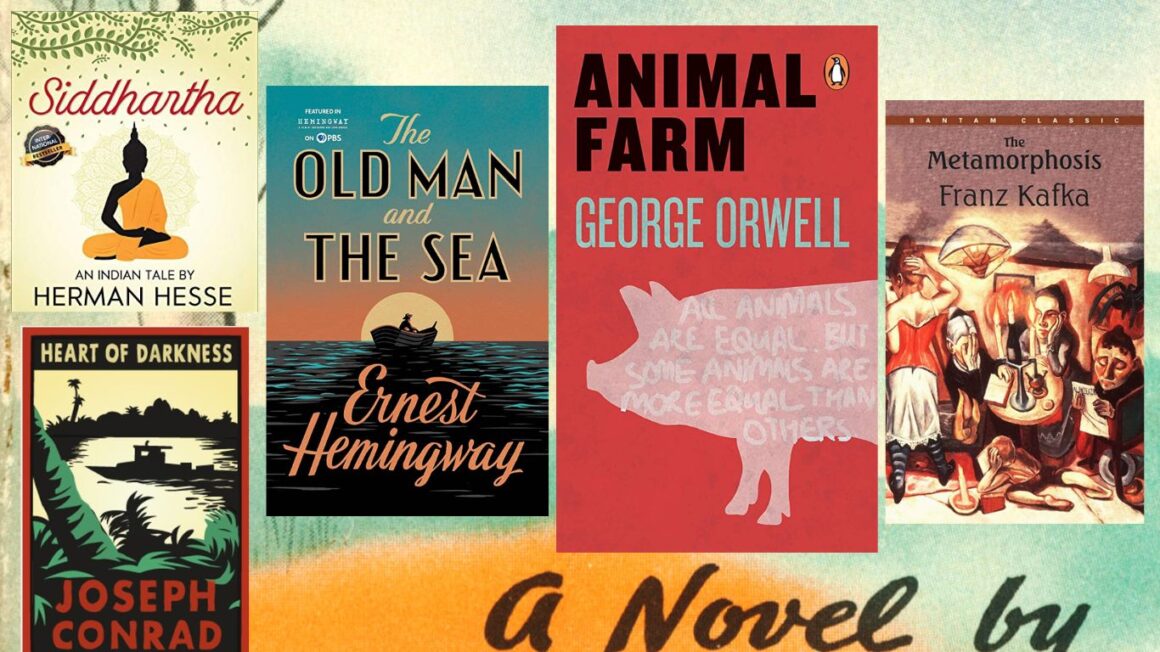- Abbott“The Metamorphosis” by Franz Kafka“Mrs.
- John Steinbeck’s “Of Mice and Men” delves into the human condition during the American Great Depressio…
- Scott Fitzgerald’s “The Great Gatsby” weaves a timeless tale of wealth, love, and deception.
- Delving into the paradoxes of the human condition, it’s a compelling journey into the dark recesses of the ‘…
- Hesse’s eloquent prose and profound thematic depth make “Siddhartha” a timeless masterpiece in world l…
- Henry James’ “The Turn of the Screw” delves into a chilling ghost story.
Classic literature, with its profound themes and timeless narratives, can be enjoyed even in shorter doses. This compilation of “20 Must-Read Classic Novels in Less than 200 Pages” is perfect for busy bibliophiles, those new to reading classics, or anyone looking to immerse themselves in enriching stories without a heavy time investment. These compact works, despite their brevity, do not compromise on depth, taking readers through intense journeys, thought-provoking ideas, and unforgettable characters. From Orwell’s biting social commentary to Hemingway’s poetic depiction of resilience, these succinct masterpieces cover a wide range of styles and themes. Let’s delve into these compact classics that promise to provide a rich literary experience.
20 Must-Read Classic Novels in Less than 200 Pages
“Animal Farm” by George Orwell
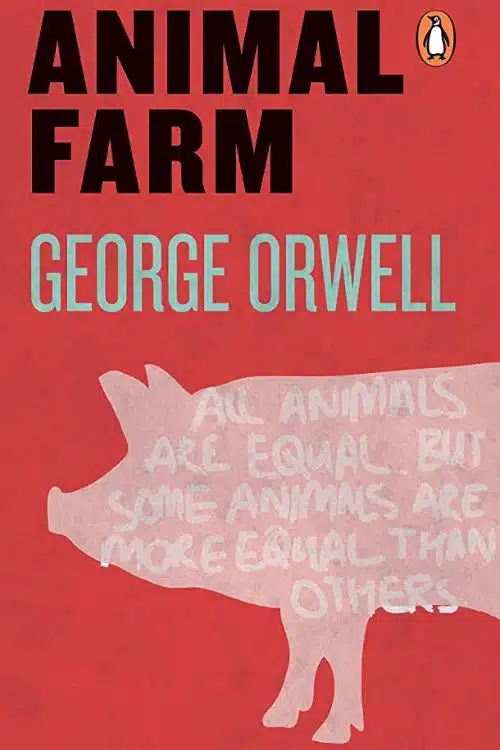
Dystopian allegories find profound expression in George Orwell’s “Animal Farm”. Narrating the tale of farm animals who overthrow their human farmer, Orwell exposes the dark underbelly of revolution and power corruption. The farm’s dream of utopia gradually deteriorates into an oppressive regime under the pigs, reflecting the Soviet Union’s transformation post-revolution. Deftly blending elements of fable, satire, and political commentary, the narrative challenges the reader’s understanding of freedom, equality, and dictatorship. With its timeless exploration of how absolute power corrupts absolutely, the story remains universally relevant and thought-provoking.
“Of Mice and Men” by John Steinbeck
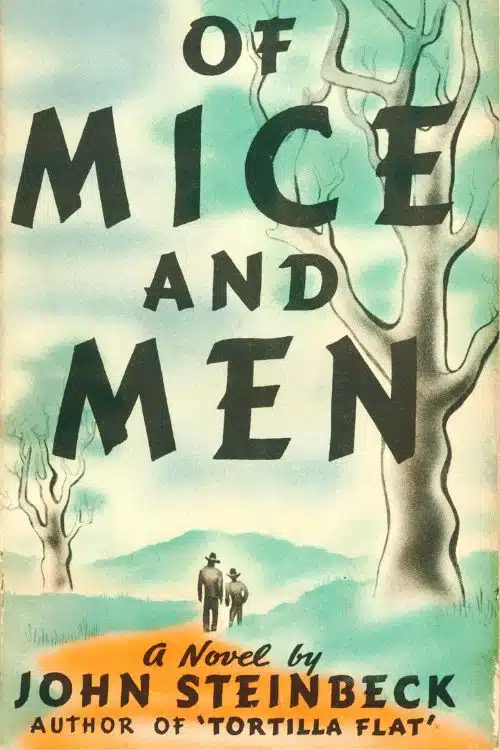
John Steinbeck’s “Of Mice and Men” delves into the human condition during the American Great Depression. Its primary characters, George and Lennie, are itinerant workers with dreams of owning their own land, a prospect that seems within reach yet devastatingly unattainable. Steinbeck’s compelling narrative and raw character depictions form the crux of the novel, weaving a tragic tale of hopes dashed by unforgiving circumstances. This emotionally stirring classic resonates with readers, illuminating the enduring struggle to attain the American Dream amidst a bleak socio-economic landscape.
“The Stranger” by Albert Camus
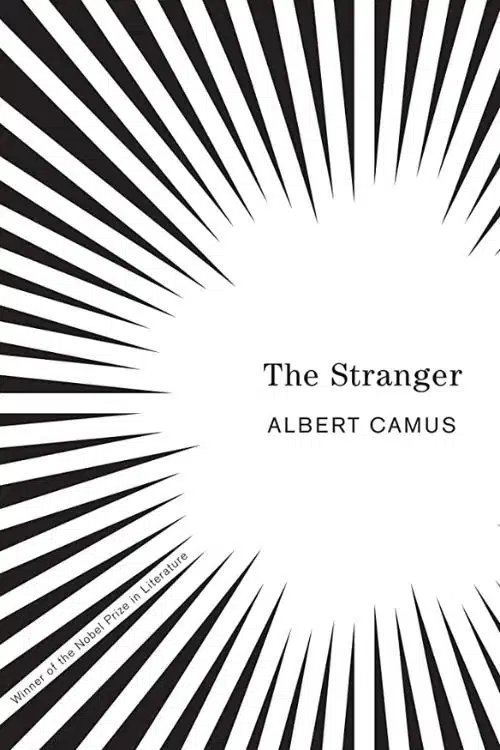
Delving into existentialism and absurdism, “The Stranger” by Albert Camus explores the apathy of its protagonist, Meursault, towards traditional social norms. His nonconformist attitude, unveiled through a murder and subsequent trial, challenge our understandings of morality, justice, and the meaning of life. Evoking a profound sense of disconnection from society, the narrative dissects the absurdity of human existence in a universe devoid of order or purpose. Camus brilliantly illuminates how we, as humans, impose meaning on an indifferent world, making “The Stranger” a powerful commentary on life’s fundamental questions. This existential classic thus presents a stark contrast to most works of its era, leaving a lasting impression on its readers.
“The Metamorphosis” by Franz Kafka
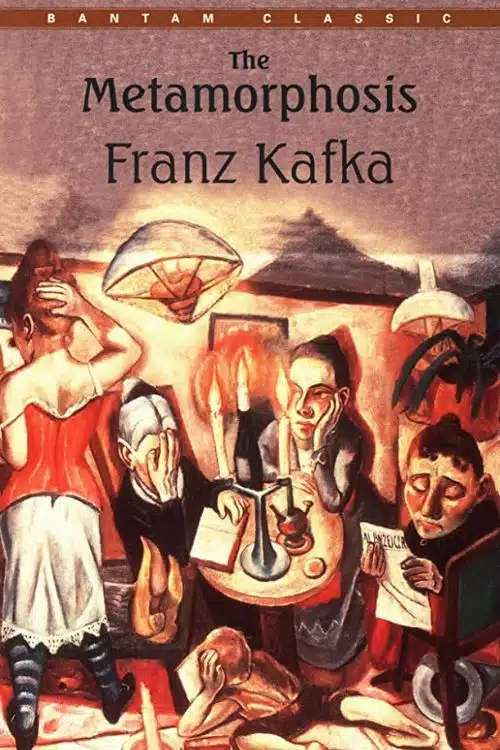
Through the book readers witness the surreal transformation of Gregor Samsa into a monstrous insect. Kafka explores themes of alienation, guilt, and identity through the lens of a family grappling with this abrupt change. The narrative is a poignant examination of human reactions to the absurd, blending grotesque horror with empathy-evoking family dynamics. Despite its grim premise, the story’s intricate nuances leave a lasting impression, drawing readers into a discourse on the human condition and existential dread. “The Metamorphosis” stands as an emblematic work of modernist literature, its haunting, Kafkaesque theme continuing to resonate with audiences worldwide.
“Heart of Darkness” by Joseph Conrad
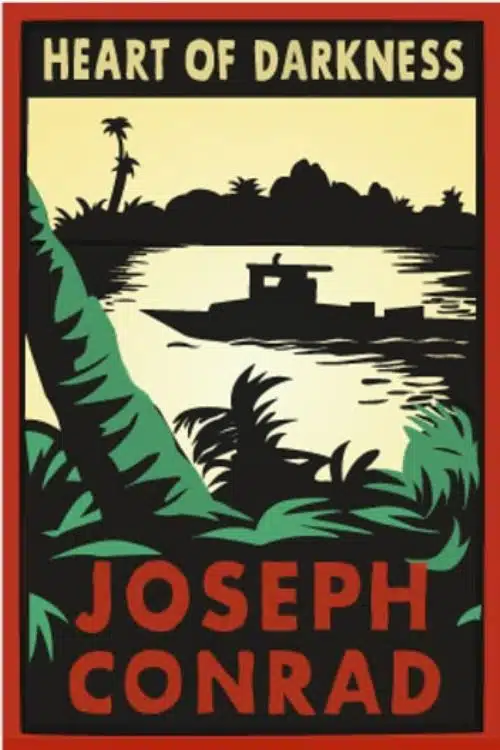
Delving into the depths of human nature and colonialism, “Heart of Darkness” by Joseph Conrad presents a haunting and provocative narrative. Set primarily in the Congo, readers journey with the protagonist, Marlow, navigating the intricate socio-political landscape. Conrad skilfully paints a grim picture of the horrifying reality of imperialism, the raw brutality of power, and the profound psychological impacts. The evocative descriptions and symbolism unveil a profound critique of the western world’s insatiable greed. As a journey to the center of the self and the unknown, this masterpiece challenges the reader’s perception of morality and the human condition. Overall, it’s a timeless classic, renowned for its depth and complexity.
“The Great Gatsby” by F. Scott Fitzgerald
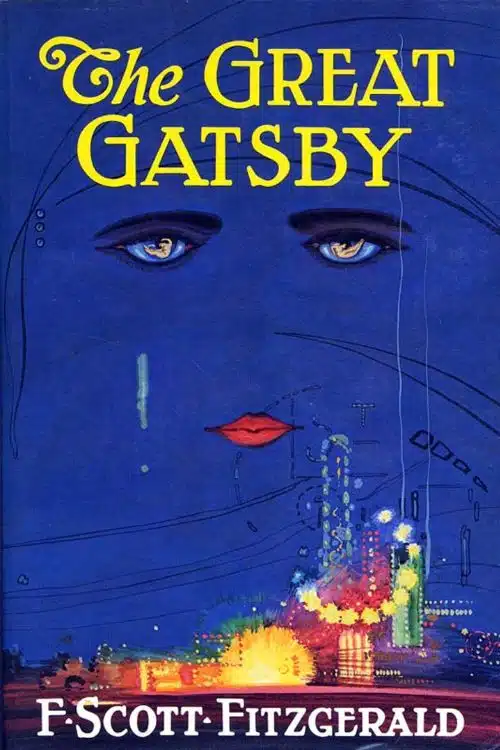
F. Scott Fitzgerald’s “The Great Gatsby” weaves a timeless tale of wealth, love, and deception. It navigates the opulent life of the enigmatic Jay Gatsby, whose obsessive pursuit of the elusive Daisy Buchanan parallels America’s relentless chase of the American Dream. This classic narrative paints a striking portrait of a society intoxicated by excess and marred by moral bankruptcy. Engulfing readers in its lustrous illusion and inevitable tragedy, Fitzgerald’s masterpiece echoes the fleeting nature of dreams and the devastating cost of living a life built on facade. It remains a profound reflection of ambition, disillusionment, and the ever-elusive concept of fulfillment.
“Breakfast at Tiffany’s” by Truman Capote
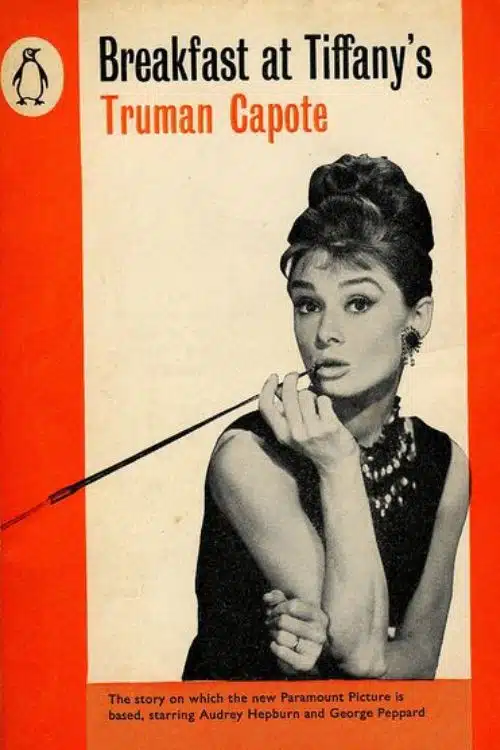
A timeless masterpiece, “Breakfast at Tiffany’s” by Truman Capote explores the enigmatic character of Holly Golightly, a young woman in New York City living a lifestyle driven by materialism and superficial relationships. Her story, narrated by an unnamed writer, unfolds amidst the glamour and grit of the city, revealing her eccentricity, charm, and the hidden complexities within her seemingly carefree existence. Through sharp and poignant prose, Capote delves into themes of identity, love, and loneliness, ultimately portraying the human quest for belonging. A compelling commentary on society and human nature, this novella leaves readers contemplating the true essence of personal freedom and connection.
“A Christmas Carol” by Charles Dickens
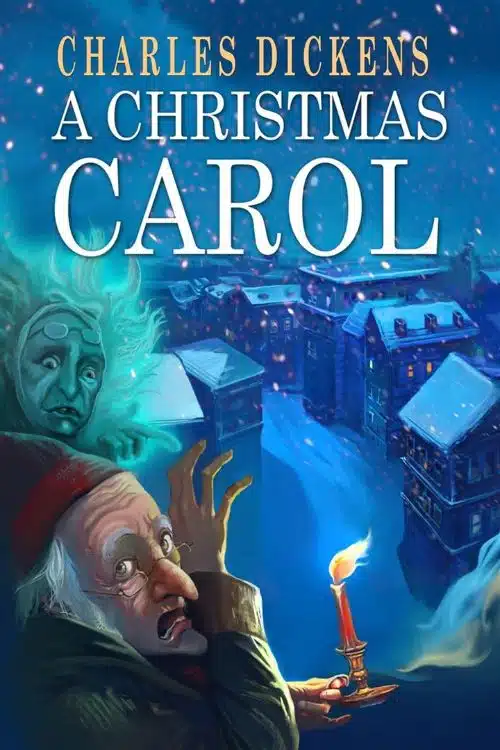
It is a timeless tale of redemption and introspection. Centered on the bitter and miserly Ebenezer Scrooge, the narrative delves deep into his transformation from a hardened cynic to a benevolent individual. Vivid ghostly apparitions and poignant past events lead Scrooge on a journey of self-discovery, unraveling the true meaning of Christmas. This tale of hope, forgiveness, and the power of compassion continues to captivate readers, making it a quintessential holiday classic. Dickens’ masterful storytelling illuminates the enduring message that it’s never too late to change one’s ways and embrace kindness.
“The Old Man and The Sea” by Ernest Hemingway
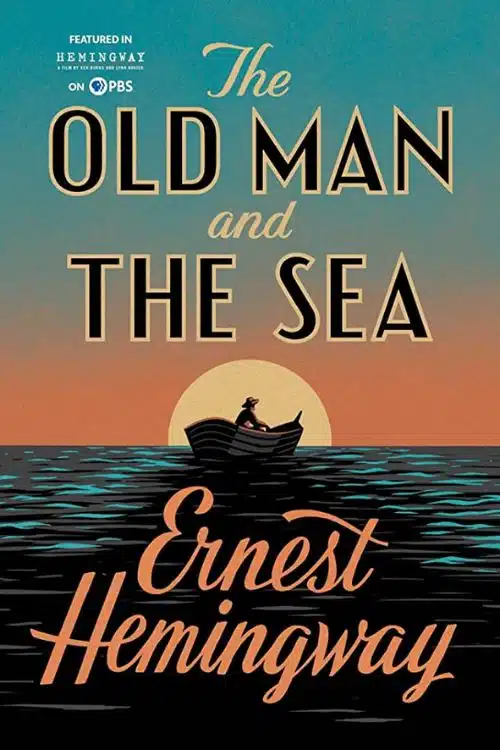
In its concise narrative, it explores the stoic struggle of Santiago, an old Cuban fisherman, against a giant marlin in the Gulf Stream. Hemingway’s prose captivates, weaving in themes of courage, pride, and resilience in the face of overwhelming odds. The narrative’s poetic simplicity and profound symbolism highlight the author’s prowess and make it a timeless classic in literature. This novel is not only a testament to human endurance but also a poignant examination of the human spirit’s timeless battle with life’s relentless adversities.
“The Death of Ivan Ilyich” by Leo Tolstoy
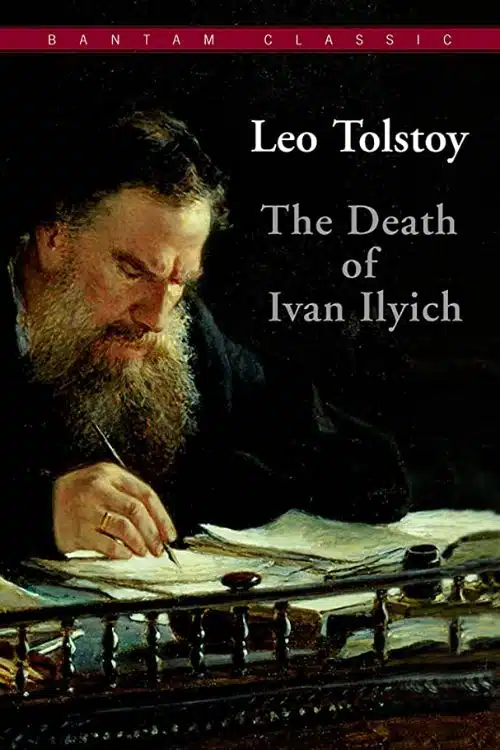
Leo Tolstoy’s “The Death of Ivan Ilyich” unveils the stark realities of mortality and societal indifference. It traces the journey of Ivan Ilyich, a high-court judge, through a sudden, terminal illness. Provocative and introspective, the narrative grapples with existential questions, life’s futility, and the pursuit of authentic living. The crisis of Ivan’s inevitable end is a mirror, reflecting the societal norms and self-deceptions that shape our lives. Through his suffering, Ivan Ilyich reaches a profound realization, making the narrative not merely a tale of death, but also a profound exploration of life’s meaningfulness. The masterful storytelling of Tolstoy leaves a lasting impression, urging us to reflect upon our existence.
“Notes from Underground” by Fyodor Dostoevsky

Exploring the depths of human psychology, “Notes from Underground” by Fyodor Dostoevsky presents a profound philosophical discourse. The narrative revolves around a bitter and isolated man residing in St. Petersburg who rejects societal norms and the concept of utopianism. Dostoevsky, in his unique style, expertly dissects existential and introspective themes through the unnamed protagonist’s rambling monologues. This profoundly introspective novella offers an unflinching view into the nature of despair, freedom, and the struggle for individuality. Its themes continue to resonate, making it an enduring classic of Russian literature. Delving into the paradoxes of the human condition, it’s a compelling journey into the dark recesses of the ‘underground’ soul.
“Ethan Frome” by Edith Wharton

“Ethan Frome” by Edith Wharton presents a gripping tale of isolation, love, and tragedy. Its eponymous protagonist, trapped in a loveless marriage, finds solace in the company of his wife’s cousin, leading to an emotional tug-of-war. Wharton masterfully captures the desolate winter landscape as a metaphor for Ethan’s unfulfilled life. In her stark, yet poignant prose, she unravels a powerful narrative that speaks of desire, societal expectations, and the consequences of choices made. It is a classic that captivates readers with its deep psychological insights and bleak portrayal of human desperation.
“Siddhartha” by Hermann Hesse
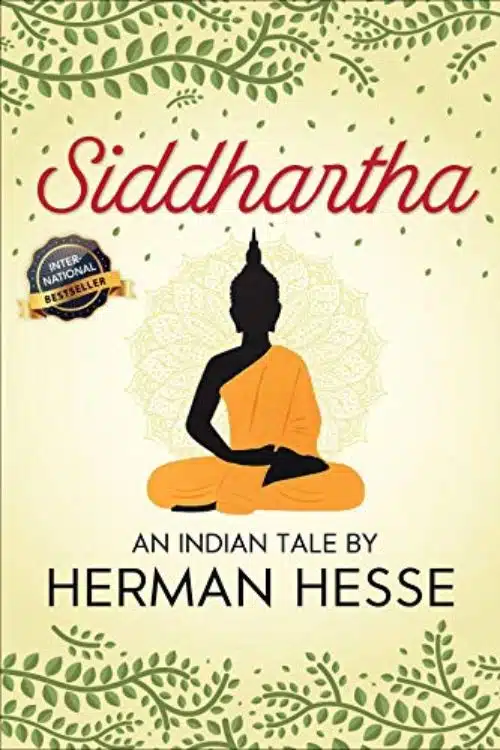
Journeying through the life of a man in search of enlightenment, “Siddhartha” by Hermann Hesse presents an evocative exploration of self-discovery and spirituality. The narrative unfolds in ancient India, capturing the essence of Siddhartha’s transformative journey from a privileged Brahmin’s son to a wandering ascetic, a successful businessman, and finally a humble ferryman. The philosophical undertones subtly examine the dichotomies of life, knowledge, and spiritual fulfilment. Deeply impactful, the novel deftly transcends time and culture, offering a powerful contemplation of human existence, inner peace, and the quest for personal enlightenment. Hesse’s eloquent prose and profound thematic depth make “Siddhartha” a timeless masterpiece in world literature.
“Night” by Elie Wiesel
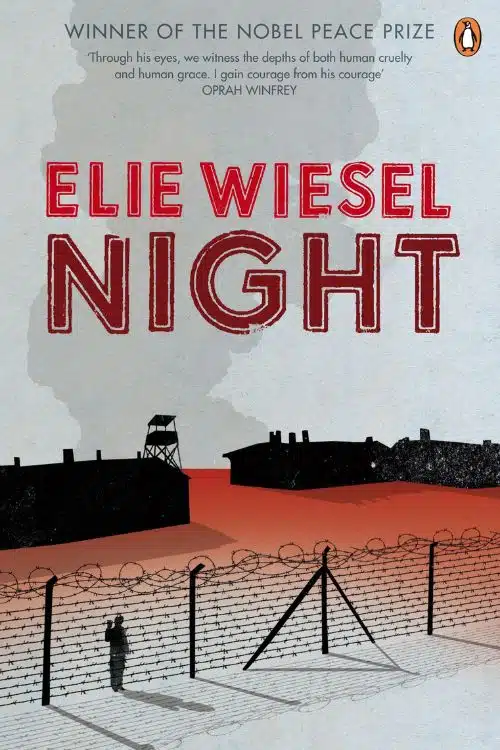
The book propels readers into the grim depths of the Holocaust. This autobiographical narrative reveals a teenager’s struggle for survival and the horrors he witnessed within Auschwitz and Buchenwald concentration camps. Brutality and loss of humanity shape the narrative, depicting the unimaginable degradations and loss suffered by Jews. Wiesel’s poignant storytelling does not shy away from the devastating emotional implications, challenging readers to confront the reality of human cruelty. Ultimately, “Night” stands as a powerful testament to human resilience, a haunting examination of humanity’s capacity for evil, and an unwavering plea to never forget history’s darkest period.
“Flatland: A Romance of Many Dimensions” by Edwin A. Abbott
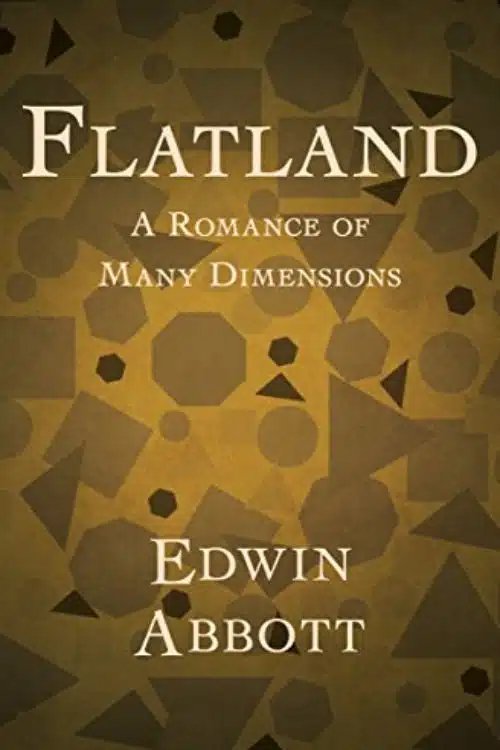
Set in a two-dimensional world inhabited by geometric figures, the narrative follows a square who dreams of a dimension beyond his own. A fascinating blend of social satire and mathematical concepts, the tale confronts societal hierarchies while delving into the complexity of higher dimensions. Challenging perceptions of reality and pushing the boundaries of imagination, this literary gem doubles as an engaging introduction to the world of geometry. Captivating, thought-provoking, and inherently profound, it masterfully captures the intersection of science, philosophy, and fiction.
“The Metamorphosis” by Franz Kafka
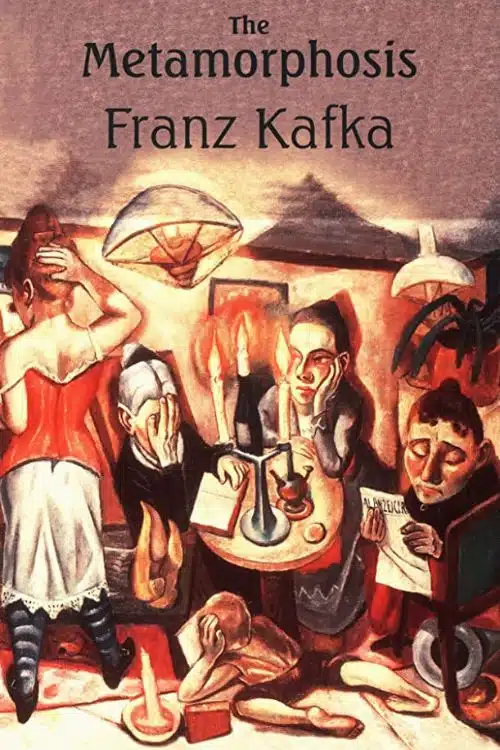
It is a surreal and thought-provoking novella that delves into the existential predicament of Gregor Samsa, a traveling salesman who wakes up one morning transformed into a gigantic insect. Through this extraordinary premise, Kafka explores themes of alienation, identity, and the absurdity of human existence. As Gregor grapples with his physical metamorphosis and the emotional disconnection it engenders within his family, Kafka offers a searing critique of societal norms and the dehumanizing effects of modern life. With its haunting atmosphere and profound symbolism, “The Metamorphosis” invites readers to confront their own existential dilemmas and question the meaning and purpose of their existence in an unpredictable and often unforgiving world.
“Mrs. Dalloway” by Virginia Woolf
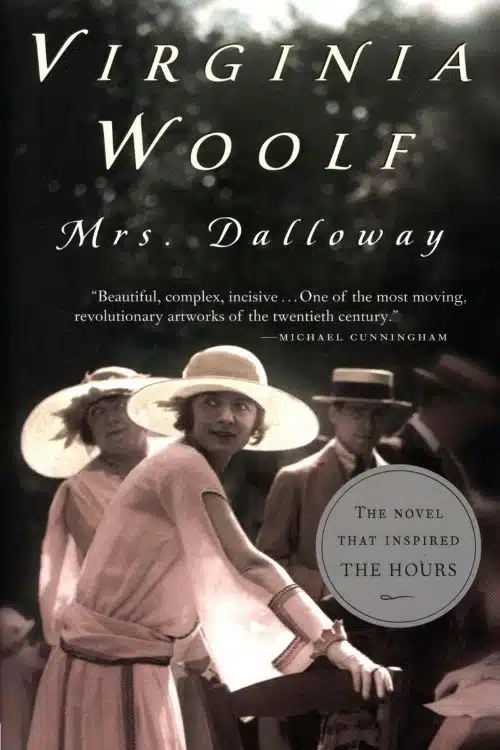
Unfolding over the course of a single day in 1920s London, “Mrs. Dalloway” narrates the tale of high-society woman Clarissa Dalloway as she prepares for a grand party. Virginia Woolf’s modernist novel weaves complex introspections, exploring themes of mental illness, feminism, and the constraints of society. Simultaneously, it intertwines the story of Septimus Warren Smith, a shell-shocked WWI veteran grappling with post-war reality. This masterful text’s pioneering use of stream of consciousness reveals the private thoughts, fears, and desires of its characters, providing profound insight into human consciousness. A revolutionary narrative, it challenges conventions of time, narrative, and character development, solidifying Woolf’s status as a literary icon.
“The Strange Case of Dr. Jekyll and Mr. Hyde” by Robert Louis Stevenson
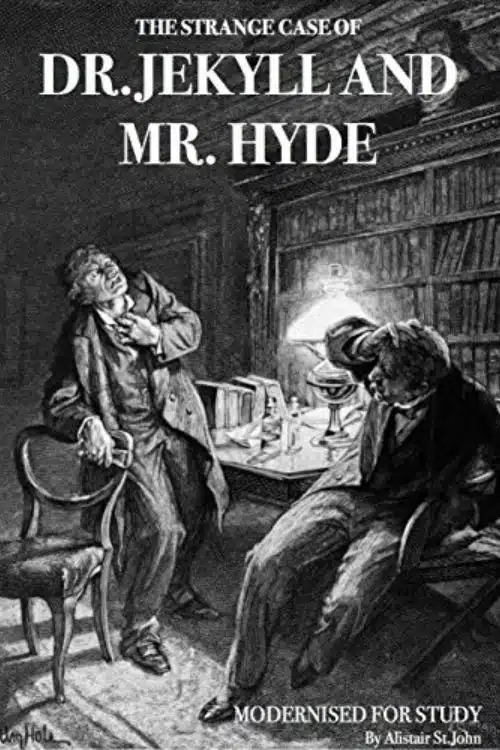
The book delves into the duality of human nature, exploring the dark depths of the human psyche. In this chilling novella, Stevenson crafts a suspenseful tale of Dr. Jekyll, a respected London physician, who discovers a potion that allows him to transform into the sinister Mr. Hyde. As Jekyll succumbs to his darker impulses and indulges in his vices, the line between good and evil blurs, and the consequences become increasingly dire. Through vivid descriptions and captivating prose, Stevenson delves into themes of identity, morality, and the consequences of suppressing one’s inner desires. This timeless classic continues to captivate readers, challenging them to confront the complexities of the human soul.
“The Turn of the Screw” by Henry James
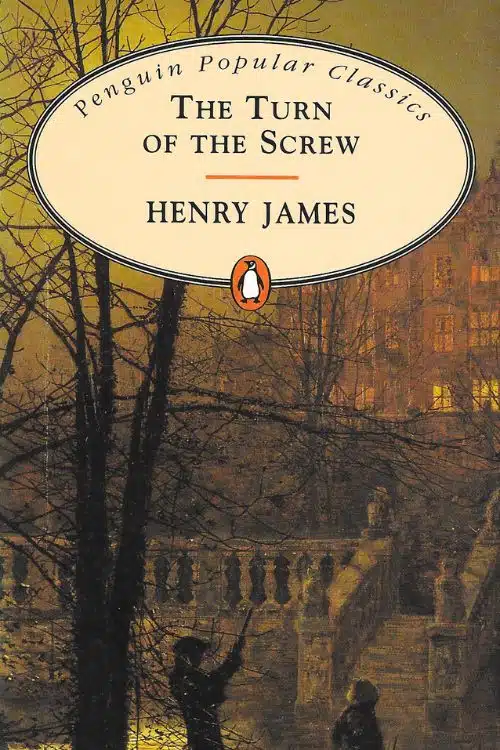
Henry James’ “The Turn of the Screw” delves into a chilling ghost story. Encased in this atmospheric novella is a young governess’s account of her employment at a secluded estate, where she becomes convinced that malevolent spirits haunt her two young charges. James brilliantly obscures the line between reality and hallucination, making it impossible to discern the true nature of the specters. As the narrative uncoils, the reader is gripped by the tense drama and the disquieting questions it raises about sanity, innocence, and the supernatural. It is a masterful exploration of fear, open to endless interpretation.
“The Call of the Wild” by Jack London
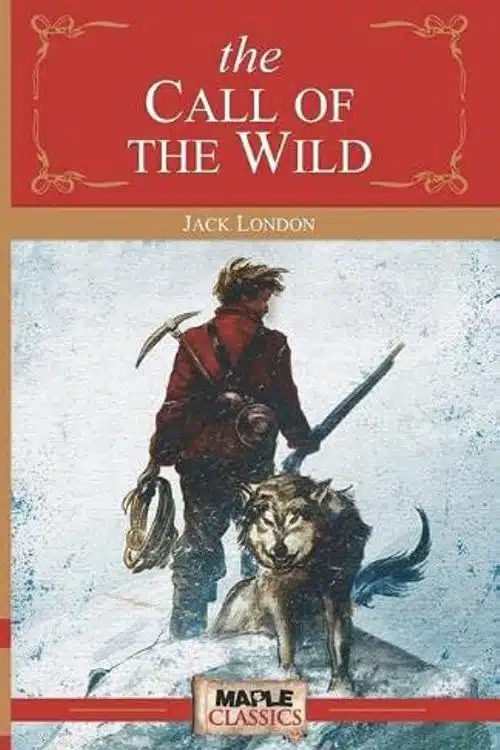
“The Call of the Wild” weaves a compelling tale of transformation and survival. Through the narrative, Jack London compellingly depicts the journey of Buck, a domesticated dog, brutally thrust into the savage life of a sled dog. London’s evocative prose masterfully portrays Buck’s primal awakening, charting his struggle against both the brutal wilderness and the cruelty of mankind. Ultimately, the tale is a poignant exploration of the thin veneer of civilization and the inexorable pull of nature. Rich in theme, character, and raw emotion, “The Call of the Wild” remains a seminal work in American literature.
Also Read: 15 New Books to Read in Summer of 2023
